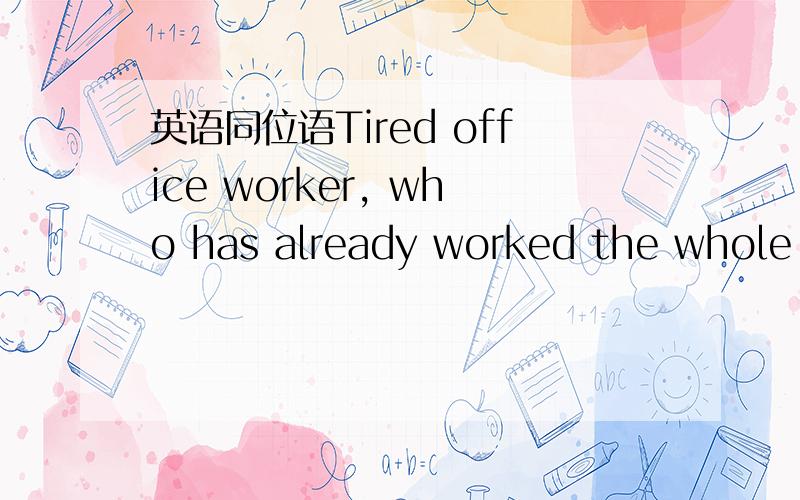英语同位语Tired office worker, who has already worked the whole day, has to wait a long time for the bus and back home.麻烦帮我看一下这个同位语对不对,O(∩_∩)O谢谢
来源:学生作业帮助网 编辑:作业帮 时间:2024/04/28 03:45:48

英语同位语Tired office worker, who has already worked the whole day, has to wait a long time for the bus and back home.麻烦帮我看一下这个同位语对不对,O(∩_∩)O谢谢
英语同位语
Tired office worker, who has already worked the whole day, has to wait a long time for the bus and back home.
麻烦帮我看一下这个同位语对不对,O(∩_∩)O谢谢
英语同位语Tired office worker, who has already worked the whole day, has to wait a long time for the bus and back home.麻烦帮我看一下这个同位语对不对,O(∩_∩)O谢谢
这是定语从句,定语部分是可以的,从句部分也可以用 being busy for the whole day
不过“疲惫的办公人员”前面应该加个the;
尽量不用worker,worker感觉是体力劳动者,工人一类,既然office了后面直接个man或者lady之类的就可以;
back home虽然口语中常用做动词“回家”,但是不够正式,最好加个get或者go
这不是同位语,是who引导的非限制性定语从句。同位语在句中起解释作用,一般放在news,case等后面起解释作用。
tired office worker是主语,who has already worked the whole day是有who 引导的宾语从句. has to 是谓语wait a long time for the bus and back home 是宾语。这句话不是同位语从句。
The tired office worker,who has already worked the whole day, has to spend a long time waiting for a bus to go back home.